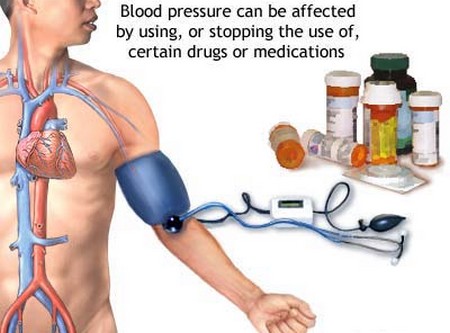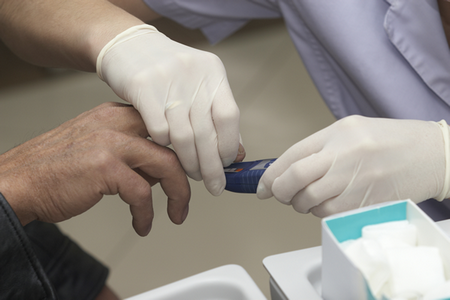Your body needs fuel to run, just like a car. But instead of gas, your body’s systems run on glucose, a simple form of sugar. The hormones insulin and glucagon control the amount of glucose in your blood. When you don’t have enough glucose to fuel your body’s activities, you end up with hypoglycemia, or low blood sugar.
If you have diabetes you already know the signs of hypoglycemia. Weakness, hunger, sweating, and confusion are sure signals that your insulin level is out of balance and your blood sugar is too low. You also know you should do something quickly to raise your blood sugar, like drinking orange juice or eating hard candy, or you might be heading for big trouble.

What if you don’t have diabetes but still get the symptoms of hypoglycemia? You may have nondiabetic hypoglycemia, which could be caused by several underlying conditions, or sometimes by an unknown factor. Or you may just be extra-sensitive to changes in your blood sugar level. Some doctors think this kind of hypoglycemia is a forerunner to diabetes.
The immediate treatment is still the same. If you have that faint and weak feeling, you need to get something into your body that will raise your blood sugar to a normal level. If you don’t have any fruit juice or candy at hand, try one to two cups of milk, two to three tablespoons of sugar stirred into a glass of water, a piece of fruit, some crackers, or a piece of cake. Once your blood sugar is back to normal, eat a healthy meal with some protein included to ward off another hypoglycemia attack.
The long-range plan for hypoglycemia
That awful, sinking feeling of hypoglycemia can hit you at any time. If you are constantly surprised by it, try keeping a record of the circumstances surrounding the episode — what you were doing and what and when you ate before it happened. In both diabetic and nondiabetic people, hypoglycemia can be brought on by too much exercise, going too long without food, or drinking too much alcohol. If you take beta blocker medications, exercise is more likely to bring on hypoglycemia. People who are alcoholics or binge drinkers often have hypoglycemia. You can even get hypoglycemia from a Jamaican fruit called ackee if you eat it before it’s ripe.
Some medical problems also cause low blood sugar. Liver disease, kidney failure, hormone or enzyme deficiencies, some cancers, and tumors of the pancreas can all make you shaky and dizzy. Pancreatic tumors are usually benign and can be successfully treated with surgery.
If you’re older, you may show much different symptoms than someone younger than you. Depression, confusion, dizziness, incontinence, falling, weight loss, and paranoia are some of the frightening symptoms you might experience.
If you are diabetic, hypoglycemia can be life-threatening. If you’re not diabetic, recurring hypoglycemia may not be life-threatening, but it can make your life complicated and unpredictable. It can also put your body under constant physical stress. Here are some things you can do to prevent unpleasant attacks of hypoglycemia.
- Don’t leave home without it. A snack, that is. Carry hard candy or glucose tablets (available at your local drugstore) to help in a sugar crisis, but also carry a snack to eat at the proper time so you won’t have to deal with hypoglycemia. Crackers with peanut butter or cheese, a piece of fruit, or half a sandwich should do the trick.
- Organize your eating. For people with hypoglycemia, the best way to eat is in small doses. Eating five or six small meals a day instead of three big ones will keep your blood sugar on a more even keel.
- Try more protein. This is a controversial area, but some people find that a diet high in protein and moderate to low in carbohydrates successfully treats hypoglycemia. Others advocate a diet high in unrefined carbohydrates. Either way, you should eat lots of fresh fruits and vegetables and stay far away from refined carbohydrates such as sugar and white flour. Save the candy and sweets for emergencies only.

- Be careful of caffeine. Caffeine heightens the effects of hypoglycemia. If you’ve just had a big meal of carbohydrates and not much protein, a cup of coffee can bring on the symptoms of hypoglycemia. It’s best to reserve caffeine for the times when you’re also eating protein, or avoid caffeine after a high-carbohydrate meal.
- Exercise safely. If you tend to get hypoglycemia, you need to take special care when you exercise. Take a snack and emergency food (glucose tablets, candy, or fruit juice) just in case you need them. Try to exercise with a friend if possible, and be sure she knows the signs of hypoglycemia and can help you if necessary.
Watch out for the conditions in your life that can leave you feeling faint and weak. The biggest factor is one you have control over — your diet. What and when you eat can influence the level of sugar in your blood, and the level of energy in your life.